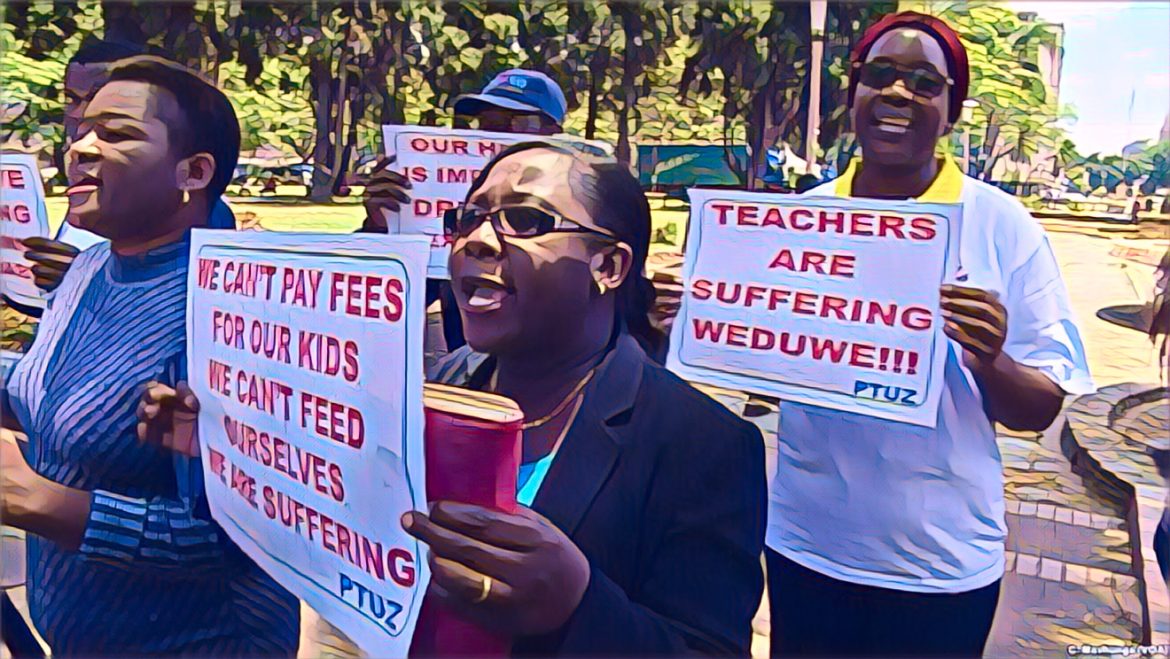KEY POINTS
- Zimbabwean government workers are taking home as little as $80 per month, leaving many heavily in debt, according to a union report.
- The rising cost of living and hyperinflation have exacerbated the financial struggles of civil servants, with wages failing to keep pace.
- The government faces growing pressure from unions to address the wage crisis and improve working conditions.
The Zimbabwe Confederation of Public Sector Trade Unions (ZCPSTU) recently revealed that Zimbabwe’s government employees are earning as little as $80 per month.
The union says that these low wages have put civil servants in a lot of debt as their wages are not enough to cater for basic needs in an economy that is experiencing hyperinflation.
Corroborated and confirmed by many other opinion leaders, the plight of the government worker is a reflection of a typical economic reality of Zimbabwe today, with the public servants being disastrously affected by rising prices, a severely eroding currency, and a frozen wages scale.
Teachers, health care givers, and other civil servants are struggling to feed their families and pay their bills with their current salaries.
Rising cost of living and hyperinflation add to woes
Zimbabwe has for long been characterized by high inflation and the latest estimates reveals that inflation went up by over 18% in September 2024 alone meaning the salaries of government workers continue to purchase less.
Housing, food, transport and health care have risen and due to this, the workers cannot be able to make ends meet with their wages.
The ZCPSTU noted that most government workers have resorted to borrowing and taking credit to cater for their daily needs hence the emergence of civil servants’ debt burden.
Since wages have not been rising to meet inflation, these workers have to borrow, at very high interest rates, and this puts them in a worse off position.
As reported by New Zimbabwe, the union says the current wage structure is unmanageable and the government should act now to stop the decline in workers’ welfare.
The unions are demanding large pay rises, which they say would not only enhance the living standards of civil servants but also boost the economy through a rise in spending.
Demands for wages changes and better working environment
The increasing debt levels among civil servants have thus caused increasing pressure, with trade unions demanding better wages and conditions.
The ZCPSTU has been in a process of bargaining with the government for an increase of their wages, but the process has been very slow and most of the workers have complained that their plight is not being understood.
The union is calling on the government to act on the wage crisis as a matter of urgency as failure to address the plight of civil servants could lead to unrest and even strikes.
Public sector employees are an important part of the country’s framework and if the discontent is allowed to continue it may affect important sectors such as education, health and civil service.
The government on the other hand is facing its own problems such as a rising national debt and a falling revenues.
Although authorities have recognized the necessity of improving wages, they have pointed to the lack of funds as a major cause of the failure to provide the large raises demanded by unions.
Economic problems and hopes for a solution
Even now, there is the possibility that both the government and unions will reach positive outcomes for future negotiations.
The workers are in earnest search for solution to their debts and to better their living standards, while the government is on the one hand concerned with fiscal responsibility and on the other hand the necessity to address :: the grievances of the public sector workers.
This has made it hard for both the public and private sectors to stabilize in Zimbabwe, but the government workers’ plight call for the need to seek sustainable solutions.
As inflation remains stubbornly high, sustainable wage changes could be the only way to stabilize the existence of thousands of employees and the continued functioning of critical sectors.


